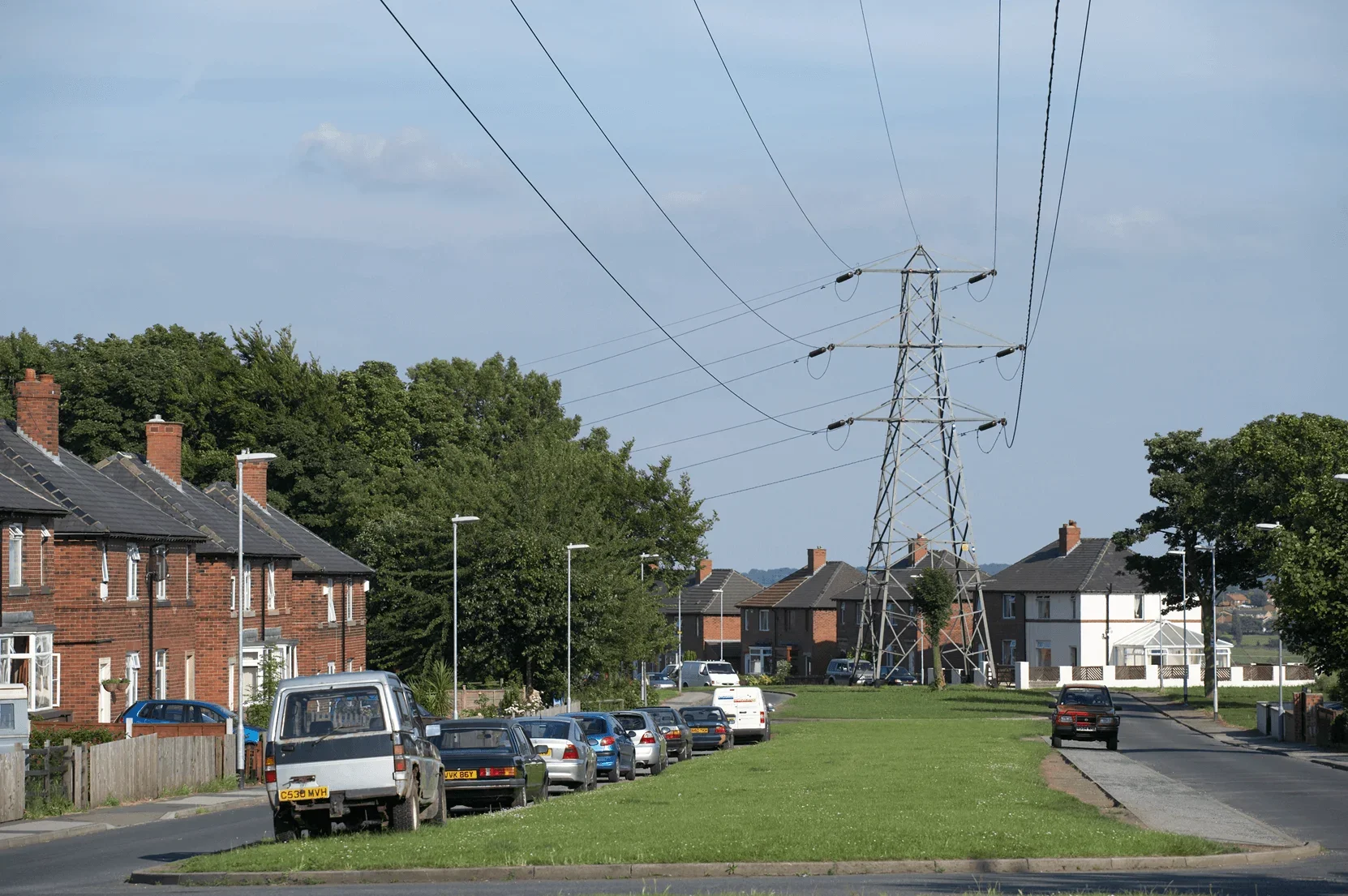BUSINESS ELECTRICITY COMPARISON
Compare business electricity prices and fix your rates
By clicking ‘COMPARE TODAY'S RATES’ you agree for us to search your current energy supplier and usage though industry held data. Enter manually
Is it time to compare business energy quotes and switch?
Take the hassle out of sorting your next energy deal. We compare from a panel of suppliers. You choose the rates that are right for your business.
By clicking ‘COMPARE TODAYS RATES’ you agree for us to search your current energy supplier and usage though industry held data. Enter manually
Compare deals from our panel of trusted UK business electricity suppliers
How to switch business electricity with MoneySuperMarket
We can switch your business to a better electricity deal in three simple steps
1
We find your details
Just give us your business postcode and we’ll use smart data to find out about your business and its electricity needs
2
We talk you through your quotes
One of our UK-based experts will search our supplier panel and give you a call to talk through your electricity quotes
3
You choose your supplier
You then choose the supplier and contract that best suits your business and we’ll support you with the switch

Our expert says
“Business electricity contracts are designed to reflect the unique needs of commercial energy use – from usage patterns and premises size to meter types. Unlike domestic tariffs, there's no one-size-fits-all. That’s why it’s essential to compare deals tailored to your business – it’s one of the quickest ways to cut costs and boost your bottom line.”
- Laura Hinton, Commercial Manager
Compare today’s business energy rates
By clicking ‘COMPARE TODAY'S RATES’ you agree for us to search your current energy supplier and usage though industry held data. Enter manually
What are the latest business electricity costs in 2026?
So, what’s the typical cost of business electricity rates per kWh? It depends on how much energy your business uses. Here’s a quick guide to the latest business electricity prices by business size:
January 2026 business electricity usage, rates, and bills
| Business size | Average annual usage (kWh) | Unit rate (per kWh) | Standing charge (per day) | Annual bill |
| Micro business | 5,000 to 15,000 | 25.8p | 58.5p | £2,794 |
| Small business | 15,001 to 25,000 | 26.0p | 70.0p | £5,456 |
| Medium business | 25,0001 to 50,000 | 26.3p | 142.4p | £11,040 |
| Large business | More than 50,000 | 25.0p | 261.9p | £14,706 |
Note: Prices are correct as of January 2026. Rates and bill size may vary according to your meter type and business location. The prices you’re quoted may be different from the averages shown. The figures shown are the average unit rates and standing charges quoted by Bionic per business size from January 1 to January 7, 2026.
These are averages, so your actual business electricity costs might be higher or lower depending on factors like your location or energy efficiency.
Why compare business electricity with MoneySuperMarket?
Finding the best commercial electricity rates can feel like a chore, especially when it’s not as straightforward as switching your household energy.
But don’t worry, running a business electricity comparison doesn’t have to be a hassle. Getting a bit of help from the experts at MoneySuperMarket means you can compare business electricity prices from a panel of suppliers in just one call. We'll help you find a contract that suits the needs of your business and help keep costs under control.
Here’s everything you need to know about business electricity rates, tariffs, and how to get the best deal for your business.
Why do businesses need a separate electricity contract?
Business electricity prices work differently from domestic rates because commercial energy use is more complex. Even if two businesses look the same on paper - operating from a high street premises with five employees - if one is a salon and one is a takeaway, how and when they use energy will be very different.
That's why you can’t just hop onto an off-the-shelf tariff like you would at home. Instead, your business electricity rate is tailored to suit:
- The type and size of your business
- The size of your premises
- Your estimated electricity use
For example, if you’re running a small shop, your electricity demands will look very different from a factory or office building. And if you’re a large business with high electricity needs, you might even need a half-hourly meter to track your energy use in real-time.
If you've got more than one site, you’ll likely need multiple meters. A quick call to an energy expert can help you sort out the best business electricity tariffs for multi-site businesses.
What’s the difference between fixed and variable business electricity tariffs?
When comparing business electricity deals, you’ll notice suppliers typically offer two types of tariffs - fixed-rate and variable-rate. Most people opt for a fixed tariff as rates are usually cheaper, and this type of contract helps protect against price volatility.
Here are the main differences between the two main types of business energy contracts:
Fixed-rate tariffs
- Lock in your business electricity rates for the length of your contract (usually 1–5 years)
- Great for budgeting since your per-unit price stays the same
- Shields you from market price hikes
Variable-rate tariffs
- Rates go up or down depending on wholesale market changes
- You might save if prices drop, but your bills could rise if prices climb
Most businesses prefer fixed rates because they’re predictable. But if you like flexibility and don’t mind a bit of risk, variable rates could work for you.
But before you commit to any electricity contract, you need to make sure it's right for your business. And you need to consider things like when you use power. If your business mainly operates out of 'normal' business hours, then a time-of-use tariff could be a good option as it will offer lower commercial electricity rates during times when there is less demand.
How to get the best business electricity prices
Running a business electricity comparison is the simplest way to find the cheapest business electricity rates. But calling multiple suppliers, explaining your needs, and jotting down quotes can be time-consuming, especially if you need quotes for both business gas and electricity.
That's why using a comparison service to do the heavy lifting can save you time and hassle. A quick call to the energy experts at MoneySuperMarket means you can compare rates from a panel of business electricity suppliers in minutes.
We use smart data to cut the amount of form-filling you need to do, but it might help if you have the following to hand when you get started:
- Your current supplier and tariff details
- How much electricity your business uses annually (check your bill)
- The type of meter you have
Once we've compared rates, we'll talk you through the quotes to make sure you're completely happy. You then choose the supplier you like best and we'll support you with the switch.
What factors affect business electricity prices?
Your business electricity rate are influenced by a mix of factors:
- Business type: Energy-intensive industries pay more
- Location: Distribution charges vary across regions
- Tariff type: Fixed, variable, or bespoke tariffs impact pricing
Unlike domestic energy, business electricity prices don’t have a price cap, so they’re more affected by market changes. That's why it's important to compare quotes and fix your rates before your current deal ends and your supplier rolls you onto its more expensive out-of-contract rates.
When can you switch business electricity suppliers?
Switching suppliers isn’t quite as fast for businesses as it is for households. You shouldn't start to compare business electricity prices until your current contract enters its renewal window. This can be up to six months before your current contract's end date.
If you do sign a new contract at this point, this won't start until your current contract ends. But it can still pay to lock in your rates early, as this helps shield you from price volatility - if business electricity rates go up during this time, you'll have saved money by switching early.
If you’re a microbusiness, it’s easier. Ofgem rules let you give notice to switch at any point in your contract, subject to a notice period.
How long does it take to switch suppliers?
If you're out of contract, switching business electricity suppliers can take as little as five days if you run a microbusiness, or up to four weeks for any other-sized business. The timeline depends on your current contract’s end date and the size of your business.
While you can run a business electricity comparison and line up a new contract as soon as your switching window opens, your new supplier won’t start supplying your business until your current contract ends.
And remember, when you switch, there won’t be any interruptions to your supply.
How much could switching save your business?
The savings can vary depending on your business type and energy use, but if you’ve been with the same supplier for years, you’re probably overpaying.
To get an idea of how much you could save by switching today, take a look at the unit rate and standing charge on your latest business electricity bill. Then check out the latest business electricity prices at the top of this page and see how they compare. If today's rates are lower, then you could save by switching.
If today's rates aren't lower, check them against the renewal rates offered by your supplier. Even if the rates you've been offered by your current supplier are lower than those above, it's still worth running a business electricity comparison to see how they stack up against the cheapest business electricity prices offered by our panel of suppliers.
Many businesses can save just by switching from their supplier’s out-of-contract rates to a more competitive business electricity tariff.
Should you worry about rising electricity costs?
Electricity prices have been volatile in recent years but the market seems to have calmed over the last 12 months. Even so, prices are still much higher than pre-Covid levels and are now rising steadily.
Businesses often feel the pinch more than households because there’s no price cap. To protect your business, focus on locking in a good deal with a fixed-rate business electricity tariff and improving energy efficiency to cut your usage.
Running a business electricity comparison with MoneySuperMarket is a quick and easy way to find cheaper rates. Once you've sorted out your next contract, you should look at ways to cut your usage and make your business more energy-efficient. Here are a few simple ideas to get you started:
- Invest in energy-efficient tech: Switch to LED lighting, install energy-rated appliances, and consider smart thermostats to optimise your energy use.
- Upgrade your premises: Insulate your building, upgrade windows to double glazing, and seal any draughts.
- Optimise heating and cooling: Turning the thermostat down by just 1°C can save a surprising amount of energy.
- Get an energy audit: Identify inefficiencies in your energy use and make the necessary changes.
Business electricity FAQs
To help you better understand how business electricity comparison and switching works, here are the answers to some frequently asked questions.








